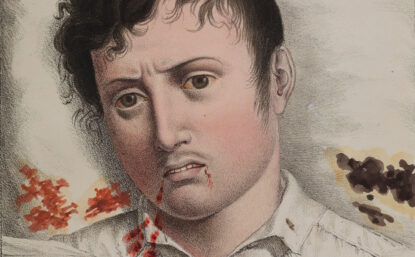
Thomas Apel
Thomas Apel studies the histories of ideas and environments in the Atlantic World during the 18th and 19th centuries. He is the author of Feverish Bodies, Enlightened Minds: Science and the Yellow Fever Controversy in the Early American Republic (2016). He was a 2016–2017 fellow at the Institute.
“Translating Lavoisier,” Thomas’s project during this fellowship, examined the reception of Antoine-Laurent Lavoisier’s chemistry in the early United States. The project showed how the cultural demands of the postcolonial republic influenced the practice and perception of “French” science during an era of revolutionary upheaval and reactionary backlash.

